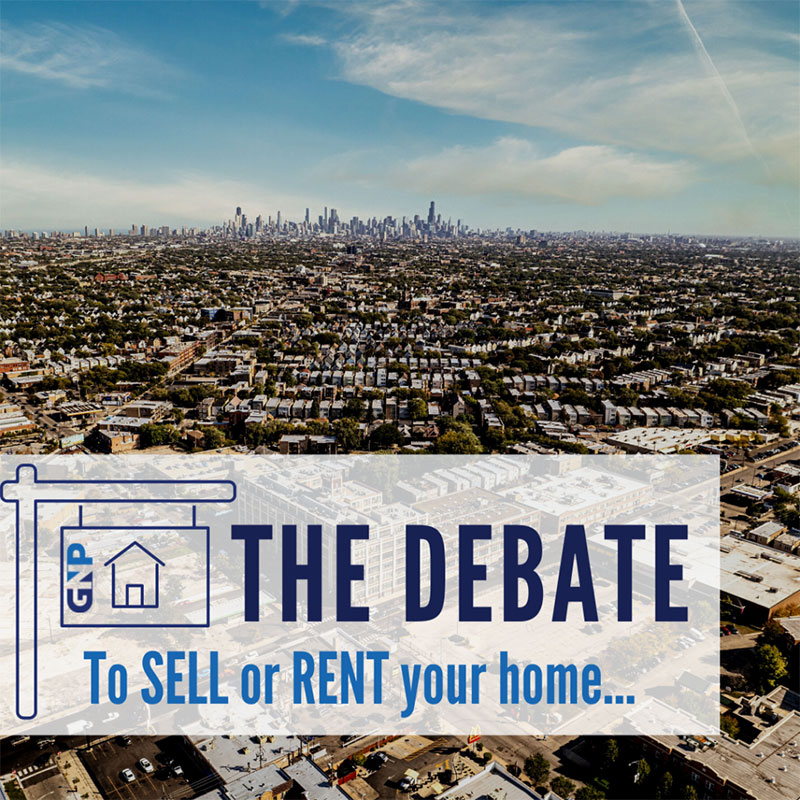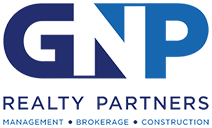
Whether due to a job change, a growing (or shrinking) family or because hybrid employment allows you to work from Hawaii, you may be faced with deciding whether to sell or rent your residential property. In today’s sky-high rental price market, renting your home may seem the smart choice. Alternatively, while home prices have begun to come down from their summer peak, there remains a housing shortage, so well-maintained homes in good areas command top prices, assuming your asking price is realistic for the market.
The decision to rent or sell is financial, but money should not be the only consideration. Following are some pros and cons for renting and selling to guide your decision-making.
Want to learn more about Residential Property Management?
Request Information | or Call Us at 312-329-8400
Renting PROS
- Timing flexibility for selling. Selling is your first choice, but the timing is bad because it’s a buyer’s market characterized by more inventory than buyers. Renting allows you to wait for a seller’s market when inventory is low and homes command higher prices. While availability and demand also impact the rental market, it is typically less volatile than the home sales market.
- Passive income. Renting is a great way to have a steady income stream, assuming the rental income exceeds the mortgage and maintenance costs. Consider rental trends and type of mortgage (fixed or adjustable rate) for future planning.
- Equity-building. Home equity is the difference between the value of the home and what you owe on a mortgage. Depending on how long you’ve owned the house and how quickly property values are increasing, it may be best to rent the property to build equity—which helps if you need a loan or want to reduce your mortgage interest rate.
- Desire to return to the home. If you think you might use the house as a primary residence someday, renting allows you to keep the property until you’re ready to re-occupy it.
Renting CONS:
- Costs exceed income. Before planning to rent, do the math. If you can’t earn enough in rental income to cover your expenses (allow for some cushion) and, ideally, net some income, it’s probably not a good idea.
- Time-consuming responsibilities. Being a landlord means you are responsible for the property and being available if a problem arises (which will happen). A property management company can take on this responsibility, but their fees will reduce your income. If you manage the property yourself and live in the area, estimate the time you spend on one home and double that. Self-managing will be more difficult and time-consuming if you live outside the immediate area.
- Unexpected costs. Even if you correctly accounted for all direct expenses associated with a rental property, expect the unexpected, e.g., an HVAC system that needs replacing, property damage, emergency repairs (double overtime), etc. Read our blog on unexpected rental property costs to help calculate costs associated with being a landlord.
- Vacancies and evictions. While you hope for the perfect tenants who rent long-term, that’s not always the case. There are costs associated with vacancies (loss of income, preparing for new tenants and marketing). Evictions are costly and painful as they can take months with the tenant refusing to pay rent.
Selling PROS:
- Immediate cash. If you need cash to purchase your next home or invest money elsewhere, or you want to take advantage of an especially hot seller’s market where a bidding war often pushes the sale price above your asking price, selling is the way to go.
- No management responsibilities, expenses or obligations. Selling your home allows you to walk away from the big decisions associated with owning a home and the day-to-day maintenance and cost. Renting also provides the flexibility and freedom to move at will with no ties beyond your lease agreement.
- Avoid expensive repairs. Older homes are more likely to need major repairs (think new roof). The National Association of Homebuilders advises that the average annual maintenance costs skew higher for older homes. While your sale price may be lower, you avoid the outlay of cash required to address these issues for a rental property.
- Avoid capital gains tax. If your home meets the IRS definition of a “primary residence” (you’ve lived in it for at least two of the past five years), you can shelter the first $250,000 of profit if you’re single or $500,000 if you’re married from capital gains tax that would otherwise be due. Renting could cost you a portion of that tax advantage because you can’t always claim it against investment properties. Consult a real estate tax specialist to assess your specific situation.
Selling CONS:
- You may lose money. Timing your sale is critical to maximizing the return on your investment, especially in a volatile market where things change quickly. There are multiple market variables, many of which you can’t control, e.g., mortgage rates. You might sign a contract with a buyer, only to realize your timing likely caused you to miss out on a better offer. Once you sign a contract, you’re legally obligated to the sale.
- Failed sale. While most home sales close as expected, some do not. According to the National Association of REALTORS®, in April 2022, 7% of home sale contracts were terminated. Also, 75% of closed sales had contingencies attached, significantly increasing the potential for a home sale to fall through. Common reasons include home inspection findings, problems with buyer financing, low appraisals, title issues, a break in the sales chain (the buyer’s current home sale fell through) or simply because the buyer changed their mind. While these issues are mostly solvable (or you can find a new buyer), selling may not be the best option if you don’t have the time or stomach to deal with such issues.
- Cost of readying the home for sale. Depending on the market and home condition, a REALTOR® may advise you to replace the carpeting, install new appliances or make other improvements to prepare the house for sale. If you don’t have cash for this outlay, you’ll likely find the rental market more forgiving of your slightly outdated kitchen or worn sections of the carpet.
Additional considerations
There are other factors to consider when weighing the decision to rent or sell that don’t fall neatly into a pro or con category, including current market conditions (for both the sales and rental markets) and the tax implication.
- Market conditions. Current market conditions and demand impact the advantages of selling and renting residential properties. Your financial goals and short- and long-term housing needs also factor in.
- Taxes. We briefly addressed capital gains. There are tax benefits for landlords to reduce or eliminate being taxed on rental income. Consult an expert to advise on taxes associated with your property’s sale or rental and minimize the impact on your tax obligation.
A win-win decision
Before deciding to sell or rent your home, do some research and give thought to the pros and cons outlined here. Talk to a financial expert to help you assess the profitability of renting versus selling based on your situation and a REALTOR® for insights on market conditions and trends. Educate yourself on the rental regulatory environment to avoid unpleasant surprises and to fully understand the scope of being a landlord.
The good news is that there will always be a need for housing, and real estate has historically been a good investment. So, after factoring in the pros and cons, whether you opt to sell and take cash gains now or rent to build equity and ongoing income, you’re making a good choice.







